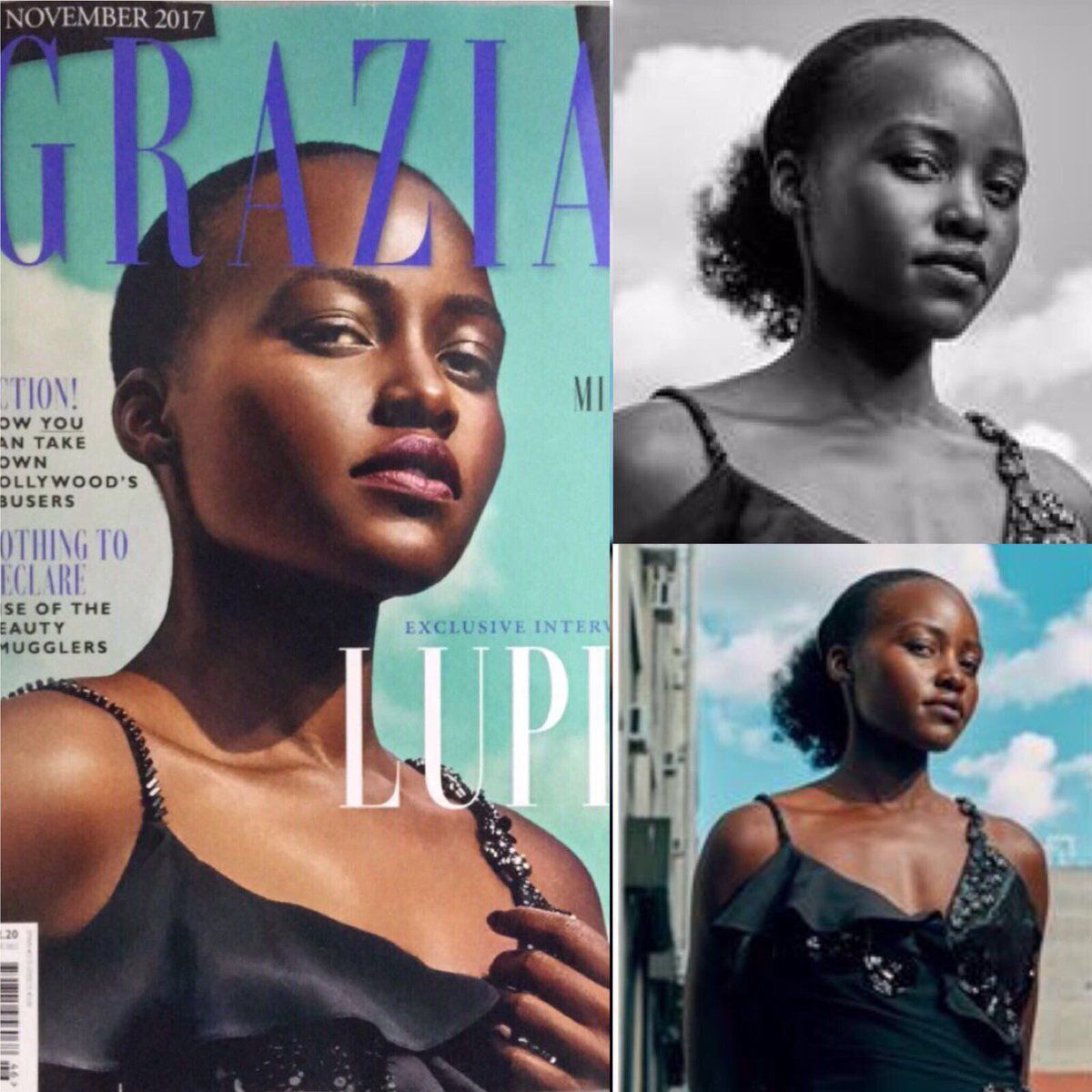Lupita Nyong’o was looking forward to being featured on the cover of Grazia UK magazine, according to the Associated Press, until she saw the finished product, that is. The photo that appears on the magazine’s November issue was edited to make it “fit a more Eurocentric notion of what beautiful hair looks like,” the actress – who took home the 2014 Academy Award for Best Supporting Actress for her work in 12 Years a Slave, the first African actress to win the award –wrote on social media.
On her Instagram and Twitter accounts, Nyong’o, 34, posted side-by-side photos of the cover before and after it was edited to show how her hair had, in fact, been altered. In a comment, she included a statement criticizing the magazine: “I am disappointed that @graziauk invited me to be on their cover and then edited out and smoothed my hair.”
“Had I been consulted,” she wrote, “I would have explained that I cannot support or condone the omission of what is my native heritage with the intention that they appreciate that there is still a very long way to go to combat the unconscious prejudice against Black women’s complexion, hair style and texture.”
The Kenyan-Mexican actress said that despite coming of age and thinking “light skin and straight” hair were the ultimate standards of beauty, she has come to “embrace” the beauty of her natural hair. Being featured on the cover of a magazine, she says “is an opportunity to show other dark, kinky-haired people, and particularly our children, that they are beautiful just the way they are.”

image: Lupita Nyong’o Instagram
After Nyong’o took a stance, Grazia UK issued a statement on social media attempting to hedge some of the damage to its reputation by stating that “at no point did we make any editorial request to the photographer for Lupita Nyong’o’s hair to be altered on this week’s cover, nor did we alter it ourselves.”
The Telegraph obtained a statement from photographer, An Le, who said, “I’ve had some time to reflect on my part in the incident involving Grazia and Ms. Nyong’o. I realize now what an incredibly monumental mistake I have made and I would like to take this time to apologize to Ms. Nyong’o and everyone else that I did offend.”
Thailand-born, New York-based Mr. Le continued on to state: “As an immigrant myself, it is my duty to be an advocate for the representation of diversity of beauty in this industry. I will demonstrate this in my work even more going forward. My altering of her image was not born out of any hate but instead out of my own ignorance and insensitivity to the constant slighting of women of color throughout the different media platforms.”
A Larger Issue in Fashion
Grazia’s cover comes not even a month after singer Solange Knowles called out the Evening Standard magazine for digitally removing her braids from the photo that appeared on their cover. As noted by the Independent, “It was particularly astonishing that the edit was given the green light, given that in the same interview Solange describes braiding as an ‘act of beauty, tradition and a form of art.'”
In speaking out against the British publication, Knowles made reference to “Don’t Touch My Hair,” a song from her latest album, A Seat at the Table, which she says describes “what it feels like to have your whole identity challenged on a daily basis.”
No shortage of industry insiders and consumers, alike, have been taken aback by the making of both covers, particularly in light of increased attention to what Nyong’o very rightly calls the “still very long way” fashion has “to go to combat the unconscious prejudice” against non-white standards of beauty.
As the Independent’s Frances Acquaah wrote this week, “Incidents such as these highlight the obvious lack of diversity of the teams behind the scenes as well as in front of the camera, and addressing this is the first step in preventing another similar gaffe.”
She goes on to note, “The media influences our perception of beauty. This is especially true during our more impressionable years … The reality is that we, women of colour, are still being turned away from jobs and schools because of the hair that grows out of our heads. It is time the media normalised images of black hair, in all its versatile glory.”
Veteran fashion journalist Christina Binkley also took on the topic on her own social media account, stating, “This isn’t just about black hair. It’s about a select group of (male) creatives – photographers, agents, designers, editors etc. – deciding how women should look, without consulting the women.”
While a report from Reuters last month indicated that Americans have grown to appreciate beauty across more skin types and ages during the past three decades, it appears as though the fashion industry – namely, the individual driving creative decision-making – is lagging behind.







